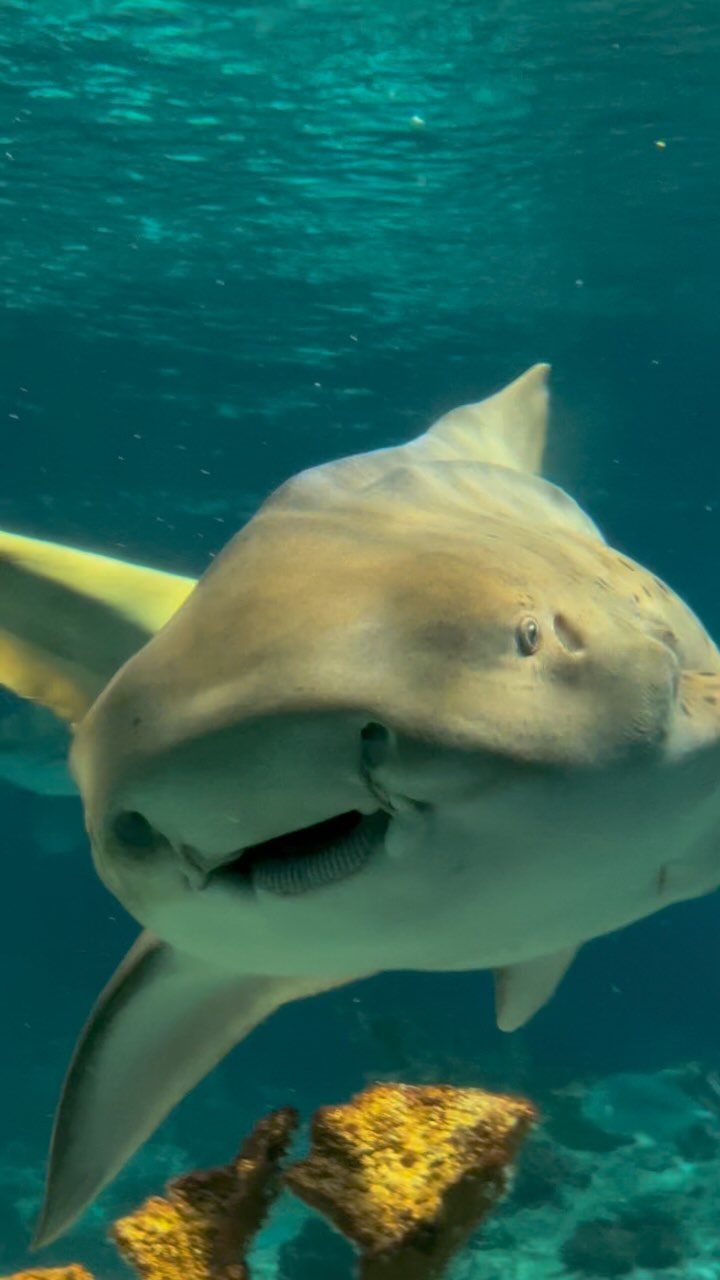- The distinct characteristics and behavior of the whale shark, highlighting its gentle nature and massive size.
- The whale shark’s ecological role and its contribution to marine biodiversity.
- Conservation efforts to protect whale sharks and the challenges faced in preserving their populations.
- Human interactions with whale sharks, including eco-tourism and the importance of ethical practices.
- The impact of environmental changes on whale sharks and the ongoing research to understand their biology and migration patterns.
The whale shark, scientifically known as Rhincodon typus, stands as an awe-inspiring creature of the deep. Renowned as the largest fish in our oceans, its immense presence commands respect and fascination. This docile shark is celebrated for its gentle nature, often described as more akin to a floating island than a dangerous predator. Despite its size, which can exceed 39 feet in length and weigh over 20 tons, the whale shark represents the softer side of the shark family, contrasting starkly with its aggressive relatives.
Characteristically marked by its unique pattern of white spots and stripes set against a bluish-gray skin, the whale shark turns heads wherever it roams. These patterns are not just for show; they serve as a fingerprint, allowing researchers to identify individual sharks. Whale sharks are slow-moving filter feeders, dining primarily on plankton and small fish, which they consume by swimming forward with their mouths open, filtering seawater through their gills. This feeding mechanism underscores their non-threatening behavior, emphasizing a lifestyle dedicated to the consumption of the ocean’s tiniest inhabitants.
In terms of ecological significance, whale sharks play an integral role in maintaining the balance of marine ecosystems. By feeding on vast quantities of plankton, these sharks help regulate oceanic populations of these organisms, which in turn supports the growth of coral reefs and other marine life. The presence of whale sharks indicates a rich and healthy marine environment, serving as a barometer for ocean health. This makes their conservation crucial for the preservation of ocean biodiversity.
Protecting whale sharks is not without its challenges. Illegal fishing, habitat loss, and pollution pose significant threats to their survival. Although they are classified as endangered by the International Union for Conservation of Nature (IUCN), many countries have enacted protection measures, including fishing bans and sanctuaries. However, enforcement of these measures is inconsistent, often limited by resources and international cooperation challenges. Conservationists continue to advocate for greater protection through international treaties and stronger enforcement of existing laws.
Human interaction with whale sharks has grown through eco-tourism, offering unique opportunities to observe these gentle giants in their natural habitats. Locations such as the Ningaloo Reef in Australia, Mexico’s Yucatan Peninsula, and the Maldives have become popular hotspots for whale shark encounters. While this interaction provides crucial economic benefits to local communities and raises awareness about conservation, it also necessitates strict management to avoid stressing the animals. Ethical tourism practices are vital, ensuring minimal disruption to the sharks’ behaviors and habitats.
Environmental changes, including rising sea temperatures and ocean acidification, significantly impact whale sharks. As migratory creatures, they rely on specific environmental cues to navigate oceanic currents. Changes in these conditions can disrupt their migration patterns, affecting their feeding and breeding activities. Ongoing research aims to decipher these patterns using satellite tagging and genetic studies, providing insights into their complex life cycles and how best to support their conservation. Scientists are exploring innovative strategies, such as citizen science programs, to collect data on whale shark sightings and movements, crucial for long-term conservation plans.
The whale shark remains a testament to the wonders of marine life and highlights the delicate balance required to preserve our oceans. Understanding and protecting these gentle giants enhances our broader conservation efforts, emphasizing the interconnected nature of marine ecosystems. As public interest in marine conservation grows, it’s imperative that we continue to prioritize comprehensive and informed efforts to protect not only the whale sharks but also the broader oceanic environments they inhabit. This commitment ensures that future generations will also be able to marvel at these incredible creatures in their natural splendor.
*****
Source Description
This shark species is known for being gentle, slow-moving, and one of the most docile sharks there is! Can you name the species? 🦈


